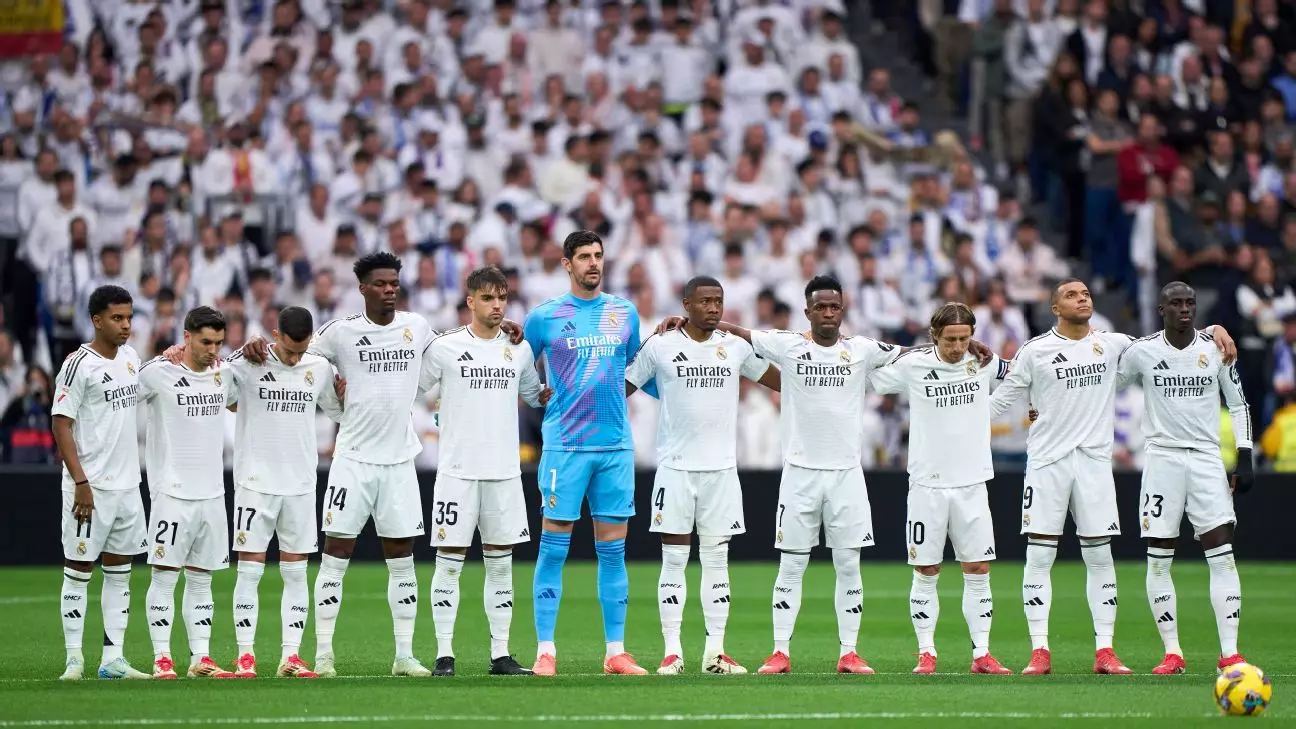In the world of elite sports, where physicality meets precision, the importance of player welfare cannot be overstated. Real Madrid’s recent outcry regarding match scheduling highlights a significant issue that has long been overshadowed by commercial interests in football. The club’s manager, Carlo Ancelotti’s assertion that they will refuse to play without a minimum of 72 hours’ rest between matches shines a light on the relentless pressure faced by players today. This demand is not merely a tactical maneuver; it is a call for recognition of the athletes’ needs in an age where money often supersedes health.
Ancelotti articulated his frustrations following a grueling series of matches, including a high-stakes encounter against Atlético Madrid that extended into the early hours. The implications of playing two taxing games within days pose a serious risk not only to individual players but also to teams’ overall performance over the season. The fact that such scheduling continues to occur reveals an unsettling disregard for athlete well-being, urging us to question the structures governing professional sports.
Commercial Interests Over Athlete Welfare
The clash between the commercial priorities of football and the health of players is a central theme in this discussion. Ancelotti pointedly blamed the overwhelming influence of “television rights and money,” suggesting that financial motivations often eclipse the need for an honest approach to scheduling that considers players as human beings rather than mere assets. His remarks evoke a pressing concern in contemporary sports – the commodification of athletes, whose well-being is often sacrificed in the name of lucrative broadcasting deals and heightened fan engagement.
These actions may not just jeopardize player health but can also set teams up for long-term failures on the pitch. Tired and physically exhausted players are more prone to injuries, which could lead to diminished performances and ultimately undermine a club’s quest for success. As teams like Real Madrid strive for greatness, they must challenge the status quo that encourages such reckless scheduling practices.
Solidarity in the Face of Adversity
Moreover, it is crucial to recognize the solidarity displayed by Real Madrid in this matter. Their decision to refuse future matches without proper rest signals a collective stand not just for their players but for the broader football community. By calling upon FIFA to regulate match schedules more diligently, they champion a movement that could instigate much-needed reform in the sport. It’s a powerful sentiment. Sporting organizations must prioritize athletes’ health when negotiating schedules, especially when they pack so many vital matches into a short timeframe.
The win against Villarreal only amplifies the narrative of endurance amidst relentless scheduling. Despite their victory, the fact remains that the players’ physical exertion cannot be overlooked nor justified. In Ancelotti’s own words, he expressed pride in his squad’s performance while acknowledging their exhaustion. This indicates a critical juxtaposition; how much longer can players perform at peak levels when their schedules do not afford them the necessary time for recovery?
The Need for Systematic Change
Interestingly, the upcoming FIFA Club World Cup adds another layer to the conversation. With the season stretching longer than in previous years, a well-structured dialogue on fixture scheduling is paramount. As players face additional fixtures, there must be a collective push for transparency and responsibility from those who organize these competitions. If football is to retain its integrity, it must safeguard the very essence of its game: the players.
Furthermore, the disparity in match preparation time, as highlighted by Barcelona’s additional day’s rest, raises concerns about fairness in competition. As clubs strive to outperform one another, those with more favorable scheduling inevitably have an edge over others. It is time for governing bodies to re-evaluate the existing frameworks that dictate match timing to create a more equitable landscape for all teams involved.
Real Madrid’s stance is thus not merely a reaction to immediate challenges but rather an emblematic wave of change that could ripple across football, emphasizing that player welfare must take precedence in a sport often dominated by financial considerations. As we witness this pivotal moment unfold, it invites us to imagine a future where health and performance can coexist harmoniously.

